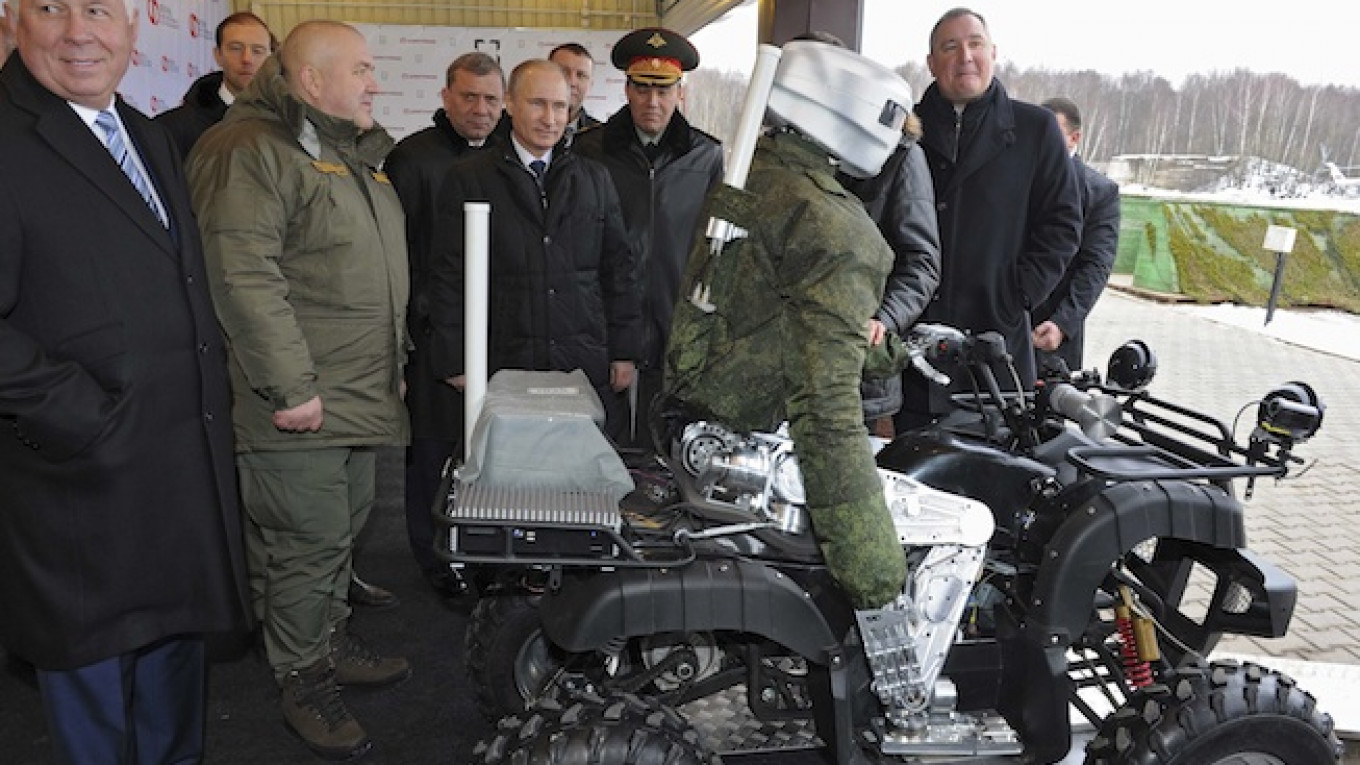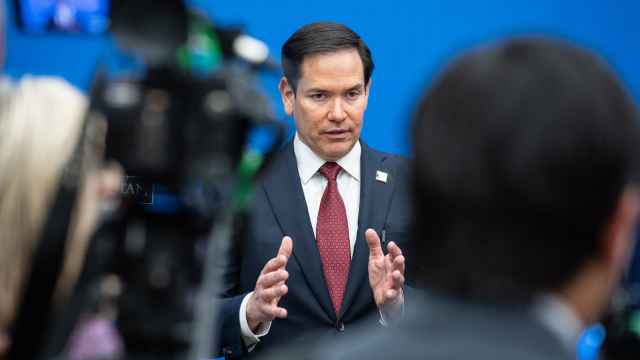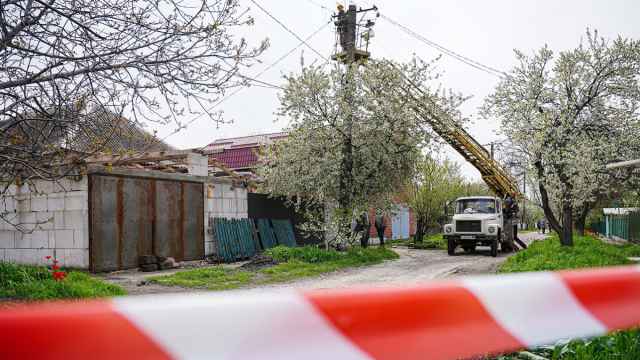Russia will cut defense spending 10 percent this year but will not touch its massive rearmament program, which eats up more than 60 percent of the defense budget, Deputy Defense Minister Tatyana Shevtsova told news agency Interfax on Wednesday.
"We believe that the budget planned for implementing the state rearmament program is an investment in the defense industry. It guarantees orders for business, new jobs and stable revenues [for the industry]," Shevtsova was quoted by Interfax as saying.
It was not immediately clear from Shevtsova's statements whether the 10 percent reduction would be based on the size of the military budget as a whole or just on the 40 percent not devoted to new procurements.
The decision to spare the rearmament program from a budget cut represents a huge victory for the defense establishment, according to Ruslan Pukhov, director of the Moscow-based Center for Analysis of Strategies and Technologies, a defense industry think tank.
"Historically, whenever there is a financial crisis and the government has to reduce spending, military procurement is the first to go," Pukhov said. Many economists have already called for Russia to slow the pace of its rearmament campaign, which dictates 20 trillion rubles ($300 billion) in spending over 10 years.
The defense industry's victory may be short-lived, Pukhov added: "If there is another readjustment in spending, it is very likely that procurement will take a hit."
The defense spending cuts come as part of the government's anti-crisis measures, published on Wednesday, which aim to bring federal spending goals in line with economic realities — namely, falling oil prices, the collapsing ruble and pressure from Western sanctions.
The plan mandates that most state expenditures be decreased by 10 percent with the exception of a few categories, which include spending aimed at "ensuring the government's defense capabilities."
Russia's 2015 defense budget was originally slated to come in at 3.3 trillion rubles ($49 billion), a 812 billion ruble ($12 billion) increase over 2014 and Russia's largest annual defense budget on record.
Even if the cuts apply to the entire military budget, a 10 percent reduction — bringing this year's military budget to around 3 trillion rubles ($45 billion) — would not reverse the upward trend in Russia's defense spending.
Contact the author at m.bodner@imedia.ru
A Message from The Moscow Times:
Dear readers,
We are facing unprecedented challenges. Russia's Prosecutor General's Office has designated The Moscow Times as an "undesirable" organization, criminalizing our work and putting our staff at risk of prosecution. This follows our earlier unjust labeling as a "foreign agent."
These actions are direct attempts to silence independent journalism in Russia. The authorities claim our work "discredits the decisions of the Russian leadership." We see things differently: we strive to provide accurate, unbiased reporting on Russia.
We, the journalists of The Moscow Times, refuse to be silenced. But to continue our work, we need your help.
Your support, no matter how small, makes a world of difference. If you can, please support us monthly starting from just $2. It's quick to set up, and every contribution makes a significant impact.
By supporting The Moscow Times, you're defending open, independent journalism in the face of repression. Thank you for standing with us.
Remind me later.






